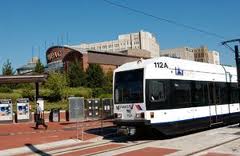New Jersey Future Blog
The Housing Hunt
January 23rd, 2002 by Tim Evans
- Some 209,000 New Jerseyans began the New Year looking for a job. Five times as many New Jerseyans have a job, but can’t afford even a two-bedroom apartment when looking for a home.
- It takes an annual salary of $37,175 to afford the typical two-bedroom apartment in the Garden State. This puts such modest housing out of range for nearly 1 million (970,020) New Jersey workers, and any families that depend solely on their salaries, including word processors (average salary $24,710), office clerks (average salary: $22,714), retail salespeople (average salary $20,530), bank tellers (average salary: $18,699), waiters and waitresses (average salary: $13,062).
- In coming weeks, the state is expected to release new “obligations” for low- and moderate-income housing to municipalities statewide. The formulas are needlessly complex and notoriously ineffective: they have provided fewer than 29,000 units of affordable housing since 1983.
- New Jersey needs a more effective approach to providing affordable housing, especially if it wants to keep and attract businesses that can fuel a thriving economy. A growth-share approach to affordable housing could replace today’s cumbersome and ineffective process, attract valuable employees and employers to New Jersey, and help minimize unwanted sprawling development at the same time.
(Sources: NJ Department of Labor, NJ League of Women Voters-Princeton Area)
AFFORDABLE HOUSING REFORM VITAL FOR RESIDENTS, STATE ECONOMY
After more than two years of review, the state Council on Affordable Housing is poised to release a third round of low- and moderate-income housing obligations to New Jersey municipalities.
At roughly the same time, the New Jersey Supreme Court will issue its anticipated affordable housing ruling in the Toll Brothers vs. West Windsor case. Significant here is the court’s potential to change the nature of “builders’ remedy” lawsuits. A builders’ remedy suit is one filed by builders against communities not in compliance with the state’s affordable housing program. New Jersey Future and a coalition of environmental and planning groups were granted “friend of the court” status in this case. While our brief supported neither party, we introduced the idea of expanding the remedy to include nonprofit builders who could increase affordable housing without inducing sprawl.
It’s time for a new approach that will reduce the need for remedies altogether. New Jersey Future advocates replacing today’s municipal obligations with “growth share,” which requires communities to build affordable housing as a fixed percentage of their growth. Had New Jersey adopted a 15 percent “growth share” approach similar to Maryland’s in 1985, its growing communities today would offer at least 71,122 homes affordable to moderate- and low-income families – small progress, but more than double the results of the current system.
Public support for affordable housing is strong. New Jersey voters polled last October by the Eagleton Institute of Politics Center for Public Interest Polling said they prefer political candidates who support affordable housing in cities, suburbs and rural areas by more than three to one over candidates who support affordable housing in cities only; and by more than 10 to one over candidates who oppose an affordable housing program.
New Jersey Future urges the adoption of the growth share approach. Growth share alone will not supply all of the affordable housing New Jersey so desperately needs. But it is a step in the right direction that will help communities better manage sprawling development as they provide much needed housing for New Jersey workers and families.
















